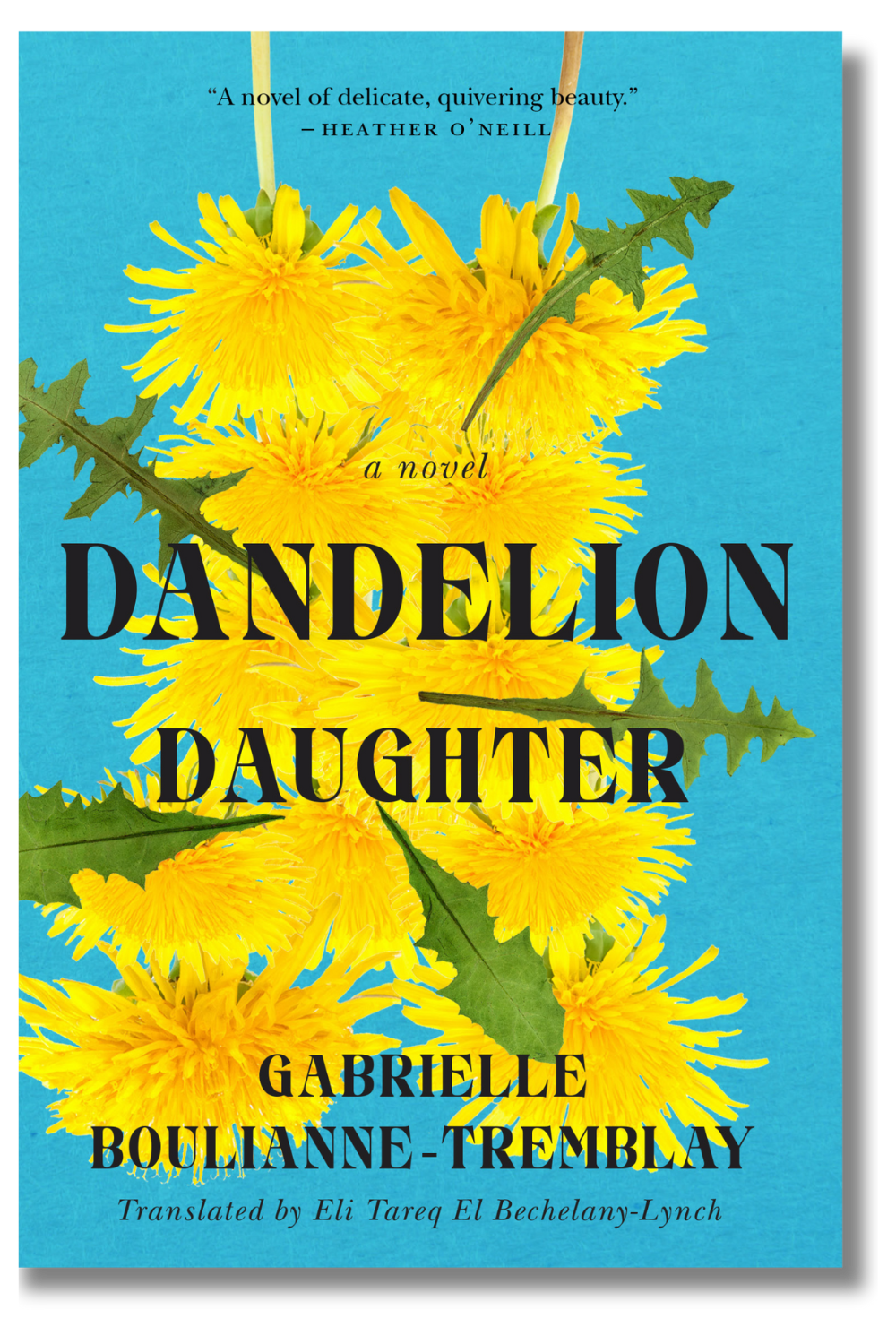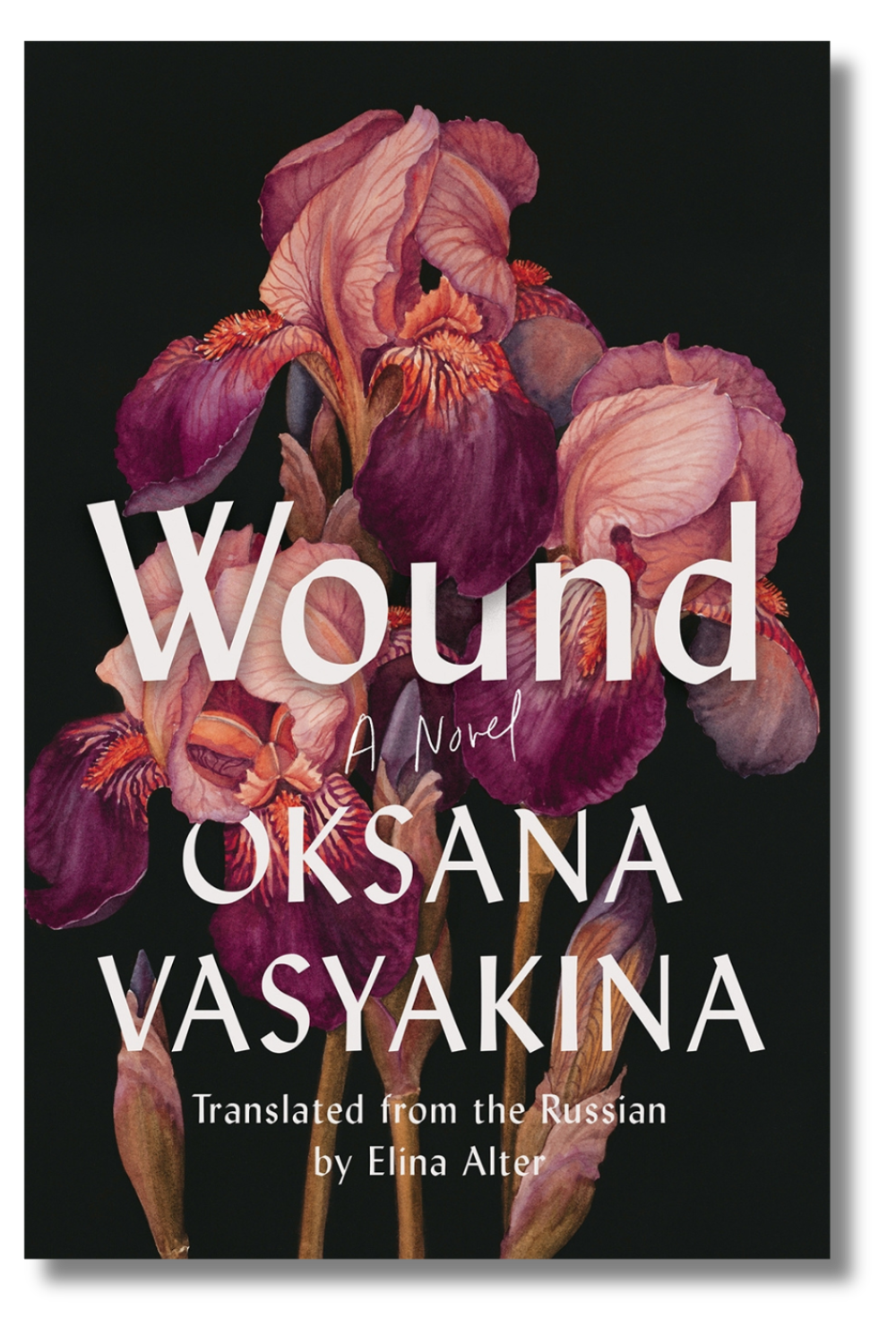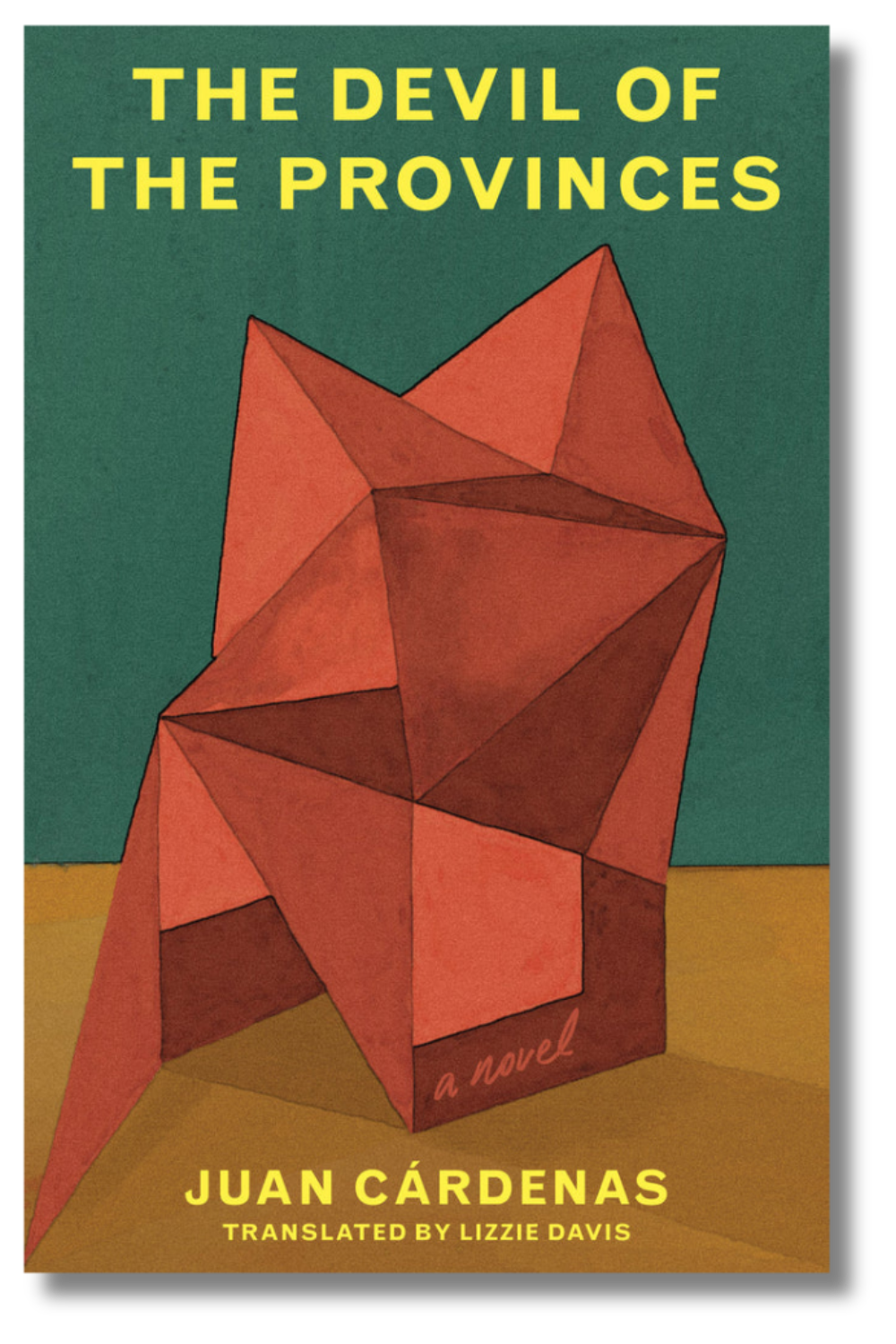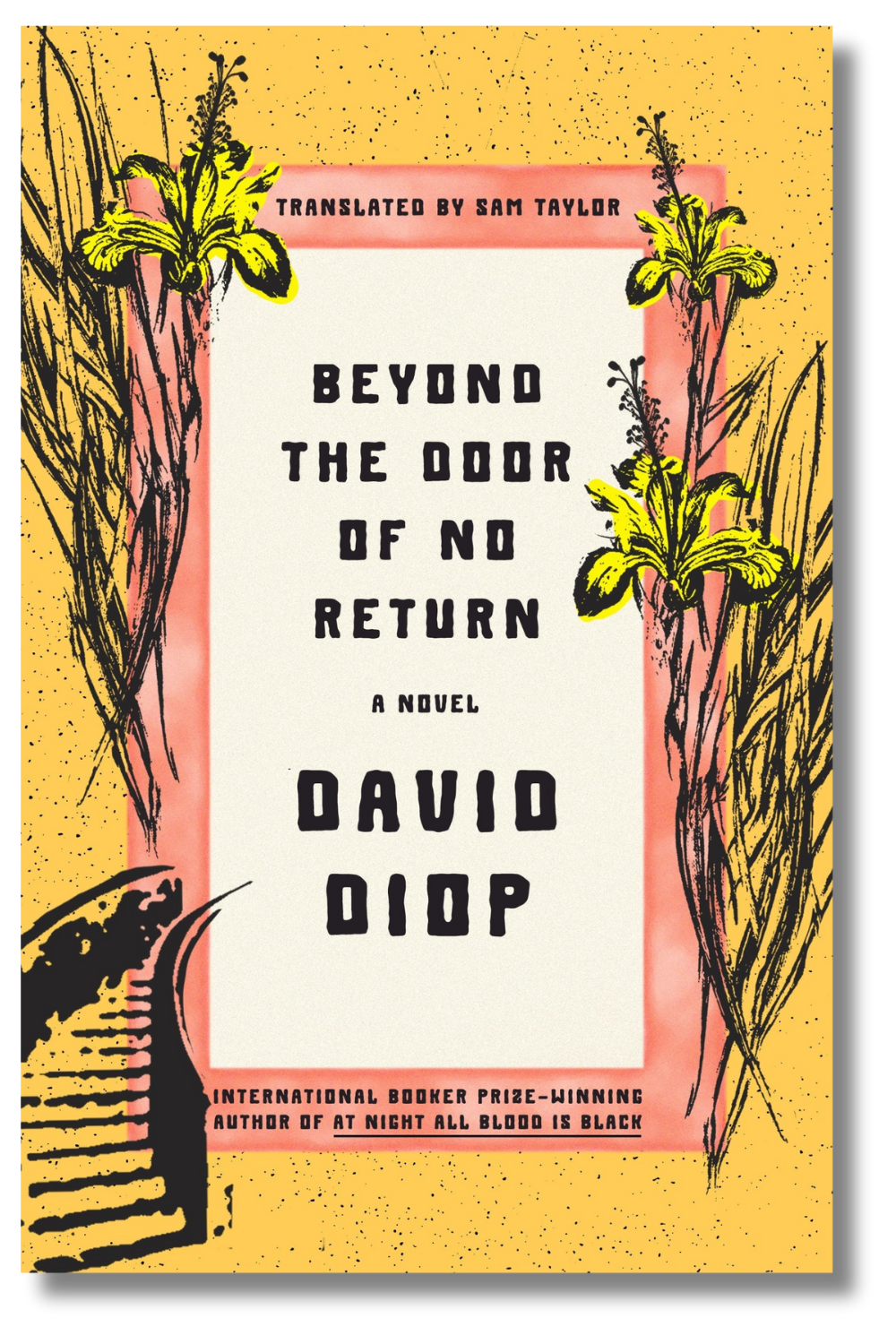From Véhicule Press | Dandelion Daughter by Gabrielle Boulianne-Tremblay, translated from the French by Eli Tareq El Bechelany-Lynch | Fiction | 280 pages | ISBN 9781550656183 | US$17.95
What the publisher says: “In the midst of her parents’ dissolving marriage, Boulianne-Tremblay takes us through the complex adolescent years of self-discovery and first loves, to the harrowing episodes that fuel the growing realization that she must transition and give birth to her new self if she is to continue living at all. One of the first novels of its kind to appear in Quebec, this inspiring story has connected with a wide readership and has been adopted by many schools.”
What Nour Abi-Nakhoul at Montreal Review of Books says: “Where Dandelion Daughter shines brightest is in its uncanny ability to express the protagonist’s emotional realities with power and depth. Boulianne-Tremblay expertly communicates the unease and frustration of growing up in a difficult environment, with her dysfunctional family and the bullying from her peers, as well as the pain and injustice of growing up trans in a cisnormative world that seeks to stifle trans existence.”
What I say: Dandelion Daughter is an often harrowing read, as Gabrielle Boulianne-Tremblay’s protagonist endures an unstable childhood—one in which quiet cruelties are the norm and glimpses of a better tomorrow are rare. Her coming of age and decision to leave home make certain things in her life easier for a time, but even then, fissures appear: “All this violence written in a notebook, hidden in the back of a drawer, like you wish you could do with your memory.” It isn’t always an easy read, but its arc is detailed and deeply felt.
From Catapult | Wound by Oksana Vasyakina, translated from the Russian by Elina Alter | Fiction/Poetry | 240 pages | ISBN 9781646221448 | US$27.00
What the publisher says: “From one of Russia’s most exciting new voices, Wound follows a young lesbian poet on a journey from Moscow to her hometown in Siberia, where she has promised to bury her mother’s ashes. Woven throughout this fascinating travel narrative are harrowing and at times sublime memories of her childhood and her sexual and artistic awakening.”
What Fernanda Eberstadt at the New York Times says: “A road trip, especially in literature, is rarely linear. Wound, its author explains, is constructed like a ‘stone cast into the water,’ rippling into ‘rings of little stories.’ These ‘rings’ include the characters Oksana meets on her journey . . .”
What I say: The narrator of Wound faces a host of crises both personal and political: there’s her mother’s death, which sets her on a trip across Russia; there’s also the fact that she’s a queer woman in a country where her sexuality is grounds for governmental persecution. That the narrator is a writer also means that she’s reckoning with the same struggles as many other artists—namely, the frustrations that can come when trying to create new work. These seemingly disparate threads converge over the course of Wound, sometimes unexpectedly—and often boldly.
From Schaffner Press | The Stone Breakers by Emmanuel Dongala, translated from the French by Sara Hanaburgh | Fiction | 335 pages | ISBN 9781639640034 | US$17.95
What the publisher says: “The Stone Breakers, set in an imagined contemporary African country, is a gripping novel told from a unique second-person point of view of the uprising of a group of women stone crushers at a gravel pit, who rise up against their corporate bosses to demand higher wages for their labor—a grueling process of breaking rocks down to gravel-sized bits to be used as road surfacing for the expansion of the country’s airport.”
What Jacqueline Nyathi at shona reads says: “[T]he main plot of the novel is also wonderful: a group of women going up against a powerful and corrupt autocracy, with a happy (if somewhat bittersweet) ending, with their encountering a powerful woman minister and a stereotypical and very familiar Mother of the Nation (the First Lady) on the way. They come up against the brutal police service and a broken health system.”
What I say: Reading The Stone Breakers against the backdrop of both new and ongoing strikes makes Dongala’s novel feel especially relevant right now. The fact that The Stone Breakers is written in the second person magnifies that element dramatically; this is a novel about labor, but it’s also a book about one very specific person—protagonist Méré—struggling with her role within a labor stoppage and the ethical conundrums she faces as the strike’s profile grows larger.
From Coffee House Press | The Devil of the Provinces by Juan Cárdenas, translated from the Spanish by Lizzie Davis | Fiction | 176 pages | ISBN 9781566896771 | US$17.95
What the publisher says: “When a biologist returns to Colombia after fifteen years abroad, he quickly becomes entangled in the trappings of his past and his increasingly bizarre present: the unsolved murder of his brother, a boarding school where girls give birth to strange creatures, a chance encounter with his irrevocably changed first love. A brush with a well-connected acquaintance leads to a biotechnology job offer, and he’s gradually drawn into a web of conspiracy.”
What Kirkus Reviews says: “Cárdenas’s unnamed protagonist returns home to his mother licking his wounds. He’s recently divorced, and his research funding has evaporated. He’s taken a job, apparently the only one he can find, as a substitute teacher at an all-girls boarding school. His only friend is his pot dealer. But a chance encounter with an old acquaintance leads him to reconsider the unsolved murder of his brother, a closeted gay man with political aspirations.”
What I say: I’m going to be up-front about this: I’m a huge fan of novels that hint that they’ll fall somewhere in the realm of detective fiction before heading in a very different direction. (Think Thomas Pynchon’s Inherent Vice and David James Keaton’s The Last Projector.) Juan Cárdenas’s The Devil of the Provinces is very much in this vein, with a biologist at its center who’s prone to distraction even as he reckons with violence both subtle and overt around him. It’s a fine entry in a memorably eccentric subgenre.
From Farrar, Straus and Giroux | Beyond the Door of No Return by David Diop, translated from the French by Sam Taylor | Fiction | 256 pages | ISBN 9780374606770 | US$27.00
What the publisher says: “Paris, 1806. The renowned botanist Michel Adanson lies on his deathbed, the masterwork to which he dedicated his life still incomplete. As he expires, the last word to escape his lips is a woman’s name: Maram. The key to this mysterious woman’s identity is Adanson’s unpublished memoir of the years he spent in Senegal, concealed in a secret compartment in a chest of drawers.”
What Publishers Weekly says: “At the same time as he considers the big picture, though, Diop writes excellently of historical and regional minutiae, as in his descriptions of the sheer heat and exhaustion his characters face on their travels. This is a novel to devour quickly, but which will leave readers contemplating its story long after.”
What I say: Readers who enjoy a good nestled narrative should find much to savor in Beyond the Door of No Return. It begins with the death of French botanist Michel Adanson, then follows his daughter as she explores the life he left behind—which, in turn, leads to Michel’s narrative of a fateful trip he made to Senegal decades earlier. His narrative reveals another, that of a woman named Maram, whose escape from slavery makes her this novel’s most captivating character. What begins like a relatively straightforward tale gradually becomes narratively and morally complex—and eminently readable.
Looking for more reading suggestions? Check out Tobias Carroll’s recommendations from last month.
Disclosure: Words Without Borders is an affiliate of Bookshop.org and will earn a commission if you use the links above to make a purchase.
Copyright © 2023 by Tobias Carroll. All rights reserved.
















